Program and speakers
Video sessions with the following guest speakers will be streamed online over the course of five days, on 16–20 November 2020.
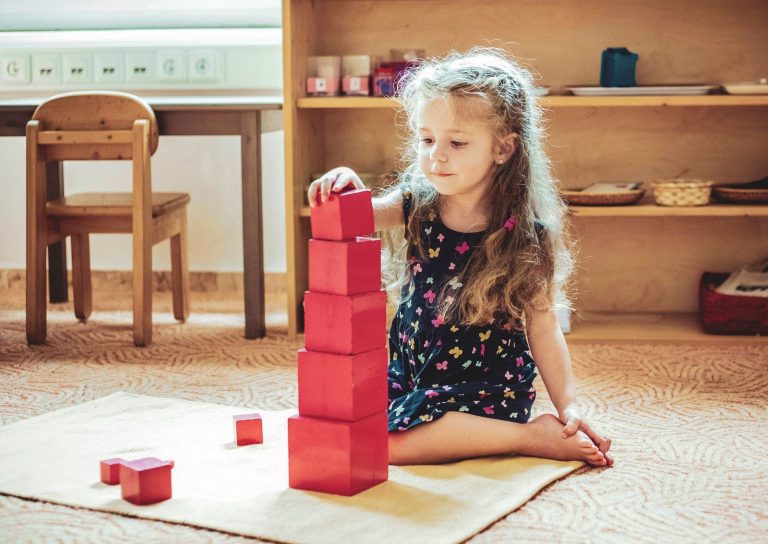
16 November
17 November
18 November
19 November
20 November
Day 1 • November 16, 2020
To educate the Human Potential
Biff will explain how his academic roots in psychology led him to a career in Montessori education, which he views as providing environments that offer “preventative therapy.” Mentally healthy individuals perform well intellectually, emotionally, socially and organizationally. Children encounter a host of obstacles to healthy development as they grow up, and this presentation shows how Montessori helps children normalize and achieve their human potential.
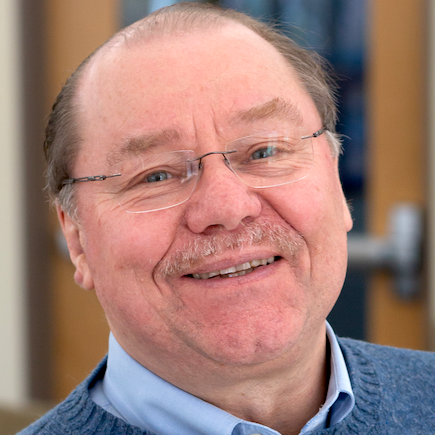
Biff Maier
William (Biff) Maier is Director of Faculty and Curriculum Development at Lexington Montessori School in Massachusetts. He co-directs the Montessori Elementary Teacher Training Collaborative (METTC) in Lexington, MA Biff also works with the Center for Advanced Montessori Studies in Vancouver, B.C. and the International Montessori Education Institute in Taiwan.
Involved with Montessori since 1974, Mr. Maier is a seminar presenter, consultant and mentor to Emerging Leader Fellows for the American Montessori Society. As former Chair of the AMS Teachers’ Section, he served on the AMS National Board of Directors. He received the AMS Living Legacy Award for 2020. Biff earned his B.A. in psychology from Duke University and his M.Ed. from Xavier University, where he also received his AMS Early Childhood and Elementary 6-9 credentials. He also earned an AMI 6-12 credential from the International Center for Advanced Montessori Studies in Bergamo, Italy.
Mr. Maier is married to a psychiatrist who practices privately in Arlington, Massachusetts, and they have two adult children who are Montessori graduates . Ida is a linguist and novelist living in Paris. Ted is a recent college graduate who works in litigation consulting in New York City.
Discipline is Not a Bad Word
Teachers and parents have backed off from discipline. They have been told to avoid consequences, avoid the word “no,” and not to put children in time-outs. Sadly, this trend has gained traction among Montessorians which is ironic, since Montessori, herself, was an advocate for strong correction from the adult until the child develops self-discipline. It is no coincidence that when adults become unassertive, children often become rude, violent and disrespectful. Children need proper discipline and they aren’t getting it. In this talk I explain why children are not getting the guidance and correction that they need and make the case that the correct discipline practices are based on the educational principles advocated by Maria Montessori.
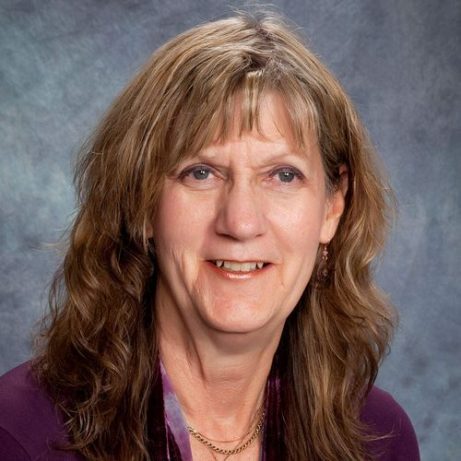
Charlotte Cushman
Charlotte Cushman attended Lewis and Clark College, Portland, Oregon, where she received a B.S degree in elementary education in 1972. Immediately after graduation, she took her Montessori training from Lena Wikramaratne (a colleague and friend of Maria Montessori). She has: both AMI and AMS Montessori certifications, over 40 years teaching experience, and co-owned and operated two Montessori schools. She speaks to the general public on education and authored Montessori: Why It Matters for Your Child’s Success and Happiness, Effective Discipline the Montessori Way, and Your Life Belongs to You.
Meeting the needs of our infants and toddlers
So often we have plans for the child - “I want them to play with…” “how can I get them to like/get interested in…?” “I hope they grow up to…. Instead, this workshop brings us back to the child and what they are showing us. When we understand the needs of our toddlers and infants, we can find ways to have calmer homes and classrooms.
You will walk away from this workshop with:
- tools to observe the child to see what they are showing us
- an understanding of the needs of our infants and toddlers
- a big-picture view of how Montessori can meet the needs of all children
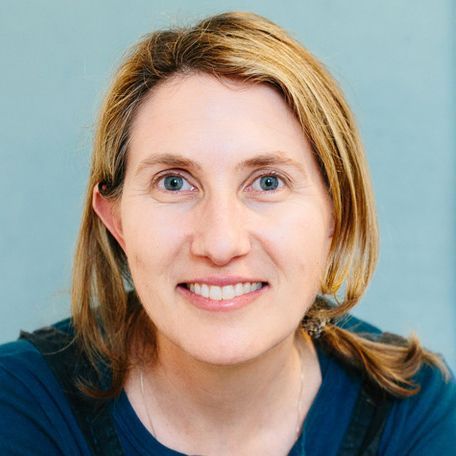
Simone Davies
Simone Davies is the author of “The Montessori Toddler” book and popular blog “The Montessori Notebook”, host of “The Montessori Notebook podcast,” and currently runs parent-child Montessori classes in Amsterdam at her school Jacaranda Tree Montessori. She is also mother to two young adults. Finding Montessori helped her so much when raising her own children and it’s now her passion to help other parents introduce these ideas in their homes too. She is currently co-writing “The Montessori Baby” (0-12 months) and “The Montessori Child” (3-12 years) with Junnifa Uzodike
Cultivator of the Human Spirit
For over thirty years, Dr. Punum Bhatia has diligently studied in great detail and tenacity Maria Montessori´s philosophy and methodology. Dr. Montessori was a pioneer and educator who implemented methods through which young children learned social skills, spontaneous discipline, and achieved academic excellence unheard of until that time. Not only did she revolutionize education, but she also worked to further the rights of women, children, and all of humankind. She worked consistently to create a better world, confident in the ability of the child to create a more peaceful, harmonious society. Dr. Bhatia began her travels in the footsteps of Dr. Montessori in 2006 and it took her 13 years to complete the journey. She now invites you to walk beside her as she revisits Maria Montessori´s incredible journey through Italy, Spain, England, the United States, and India.
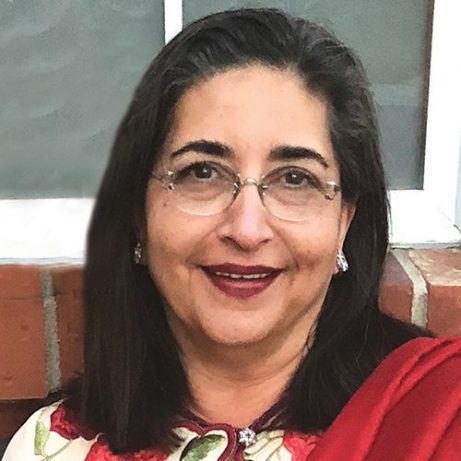
Dr. Punum Bhatia
Inspired by Dr. Maria Montessori’s philosophy, Punum Bhatia, PhD has dedicated her life to Montessori education as a parent, teacher, and teacher educator for over thirty years. She completed her Bachelor’s degree in English Literature; earned Masters’ degrees in English Literature and Education from the University of Calcutta; and completed a certificate diploma in Montessori Pedagogy. She earned her Doctor of Philosophy from the University of Colorado Denver in 2012 for her work on the Self-Efficacy of Montessori teachers. In her efforts to understand children and the environments necessary for them to grow and flourish, Punum focuses on Maria Montessori’s original philosophy and techniques. After teaching the Montessori method to cohorts all around the world, she is now the proud owner of her very own bilingual preschool, Montessori Casa International in Denver, Colorado. She is the author of The Montessori Difference: Creating a Children’s House, Cultivator of the Human Spirit: Revisiting Maria Montessori’s Journey, A Montessori Workbook, Volumes 1, 2, 3 and The Inspired Child. Book list available here.
www.mcidenver.edu / www.punumbhatia.com
We Can't Go Back – Microaggressions and Antiracist Practices in the Montessori Classroom
Montessorians are learning the importance of deepening our practice with knowledge of a culturally changing world. Teachers and school leaders will learn how to put into practice the courageous work of changing race as a social construct in the classroom, examining our curriculum and materials, and how children and staff are affected by micro, unconscious thoughts and practices. Attendees will receive a booklet on social justice terms and beginning race curriculum.
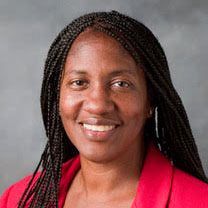
Cindy Acker
Dr. Acker serves as principal of The Child Unique/Montessori Elementary Intermediate School of Alameda for 37 years. She holds degrees in education, Human Development and Culture & Spirituality. Cindy graduated from UC Berkeley with a doctorate in Educational Leadership. Cindy has served in public policy, as former VP of the National Child Care Association and policy adviser, representing Montessori schools. Cindy leads the Social Justice Task Force for the International Montessori Council, holding weekly IMC Town Halls on individual and systemic racism. She is a published author and an international keynote speaker, specializing in social justice and racism issues.
The power of storytelling
Storytelling is an integral part of being human within a community. Sometimes, people either don't feel confident telling stories and might not understand why storytelling is important. Our presentation helps people understand why storytelling is important for learning and education and how to be a great storyteller.
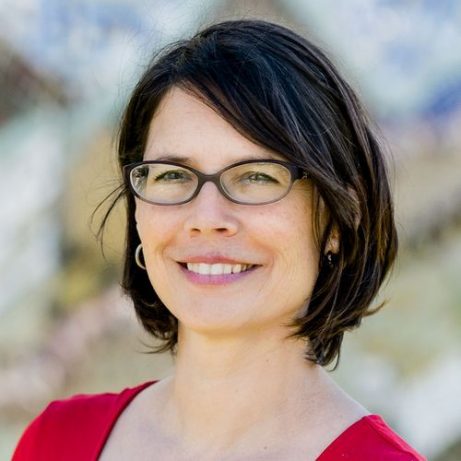
Letty Rising
Ms. Letty Rising earned her B.A. in Sociology at the University of California, Santa Barbara, obtained her State Teaching Credential through the California State University, San Marcos, and participated in AMS Montessori training for ages 6-9, before earning her AMI elementary diploma for ages 6-12 and M.Ed from Loyola University in Maryland. Ms. Rising moved into her first administrative role because she wanted a Montessori school for her daughters and there were none in existence where she lived, so she started one! She has held positions as a Homeschool Education Specialist, Montessori Elementary Teacher, School Director, Principal, Montessori Coordinator, Teacher Trainer, and Consultant with several different Montessori communities over the years, working in schools with children from infant through adolescence throughout the United States and worldwide. In addition, she frequently blogs for Montessori organizations and has developed online courses for Montessori teachers and homeschool parents.
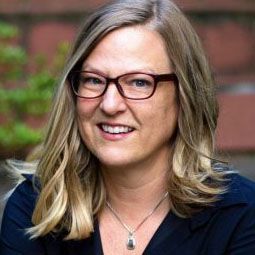
Jana Morgan Herman
Jana earned her B.A. in English Literature from Indiana University, New Albany, and obtained her State Teaching Credential with a Reading Specialist Endorsement from the state of Indiana. She earned her Master's in Education with an emphasis in Montessori Education through the St Catherine University, St. Paul, MN. Jana holds AMS 2.5-6 certification, an AMI Assistant´s certificate for 0-3, and RIE Level 1 from Ruth Anne Hammond and Deborah Greenwald, and participated in CGMS 6-12 training, and Administrative coursework through the Montessori Foundation. Jana started her Montessori journey when her children were infants, and led 3-6 classrooms from 1999 to 2015, before transitioning to a director position at one of the longest-running Montessori schools in Louisville. In 2001, she started as an instructor for an AMS/MACTE TEP. Today, she teaches for a number of MACTE teacher education programs in the US and Asia and is the Director of VMAT, a MACTE/IMC TEP in Hanoi, Vietnam. She has held positions as a long-term substitute, Education Specialist, Lead Teacher, Montessori Elementary Teacher, School Director, Montessori Level Coordinator, and Consultant. Jana has developed online courses for Montessori teachers and homeschool parents and offers continued support to parents and mentorship to teachers, which brings her great joy. She also cares for her infant granddaughter on weekday mornings, which is the best kind of training she could engage in at the moment.
Setting the Tone and Culture of Your School
This presentation will lead you through a journey of understanding the origins of school culture and how to influence that positive tone and culture that you want for your school.
- Understand yourself under stress and what you invite from your constituents
- What is your staff, parent and student behavior telling you?
- What is the need behind the behavior and how do you meet that need?
- Establishing accountability in relationships - recognizing the drama triangle
- Breaking the drama in classrooms, with staff and with parents.
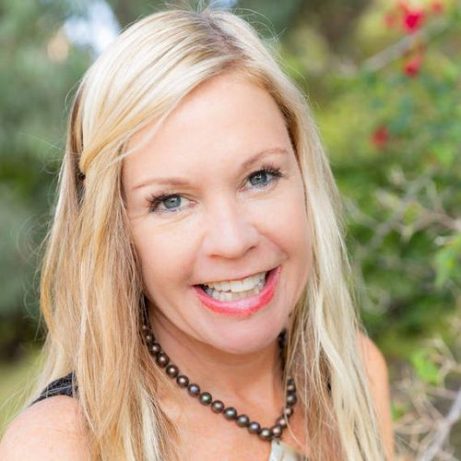
Shawn Edwards
Shawn Edwards received her B.A. in Psychology and Human Services, her AMI Elementary Montessori training and certification, her M.A. in Transformational Coaching and Leadership. She is also a Positive Discipline parenting coach and trainer. She began her Montessori career at the Post Oak School in Houston, Texas. In 2006, she moved to Chicago to lead the Alcuin Montessori School, followed by a transfer back to Texas as the Executive Director of the Community Montessori School in Georgetown, Texas. Ms. Edwards has also served as a consultant to various schools and organizations across the country. She has been involved in various leadership training including school leadership courses offered through Independent School Management and the National Association of Independent Schools. She is currently the Head of School at a LePort Montessori school in Solana Beach, Ca. and the owner of her newest initiative: ToolHows – „How to Tools for Parents and Schools.“ www.toolhows.com.
Shawn has been married for over 30 years, has three grown children (all who attended Montessori programs), and is a proud grandmother of two Montessori children. When she is not working or studying, she enjoys hiking, camping, reading, writing, participating in and training for adventure runs, and spending time with family.
The "4th period" lesson: thinking routines
We live now in an ever-changing future. Dr. Montessori understood that children must develop their abilities to think and adapt. When children, drawn to the amazing Montessori materials, work with repetition, they develop several routines of thinking. But we need to go further.
In this presentation, we will build upon our legacy by defining and experiencing additional thinking routines that can be included in our "4th period" lessons. We will:
- Define thinking
- Identify the 5 thinking routines already imbedded in the Montessori materials
- Define thinking routines
- Understand how thinking routines can occur as "4th period" lesson
- Demonstrate how to incorporate these thinking routines in your lessons with children
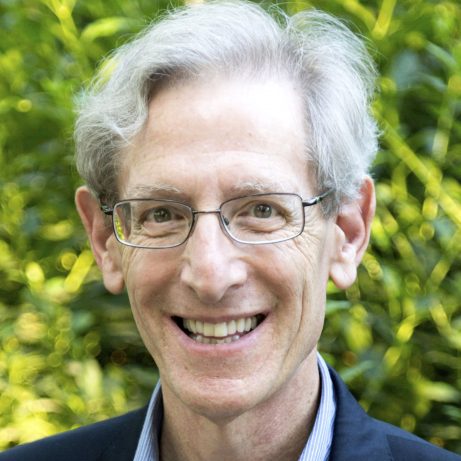
Dr. Paul Epstein
Paul is the educational director of Designs for Lifelong Learning. He has worked in education as an administrator, university professor, teacher trainer, classroom teacher, researcher, consultant, and author.
A highly regarded international and inspirational speaker, Paul brings transformative learning experiences to educators and parents throughout the world. He is the author of numerous articles and books including An Observer’s Notebook: Learning from Children with the Observation C.O.R.E. He is also the co-author of The 60-Day Montessori Observation Workbook and The Montessori Way, a definitive work on the Montessori experience.
His administrative experiences include working as a head of Montessori schools, and he brought the International Baccalaureate Middle Years Program to one of the schools. Paul also works as a director and instructor of Montessori teacher education programs. He has been a Montessori classroom teacher in Montessori early childhood, middle, and high school programs.
Paul holds Montessori teacher certification in early childhood and secondary levels one and two from the American Montessori Society and his doctorate is in Cultural Anthropology.
Positive Growth: Navigating Emotions & Creating Healthy Boundaries
Our toddlers are discovering the world and how to adapt to their time. Struggles, frustration, problem solving and all that comes with this is part of their journey. As adults we need to be ok with all the forms of emotions they express and support them by giving appropriate space to try and fail instead of doing it for them to keep them always happy.
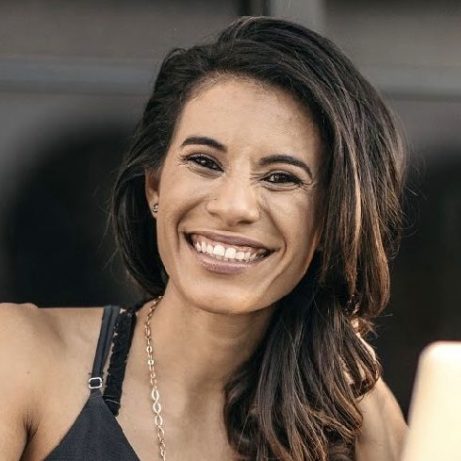
Wendy Kaneshige
My names is Wendy Kaneshige. I am at a point were my passion and my work is one. Working with the children in the classroom lights me up and fills up my heart with so much joy. But our work goes beyond the classroom. I found my purpose in helping families in their home setting, providing the tools to understand their toddler and his needs; as well helping other Montessori guides prepare their environments to fit the needs of the children. Being the support system needed to better themselves and better serve the families in their communities. Creator of: Keystobloom.com
Day 2 • November 17, 2020
The underlying principles that support the successful management of a Montessori Classroom
In this lecture, we unpack the role of:
- the three-hour work cycle,
- freedom of choice
- and rewards & punishments
in successfully managing a Montessori classroom. We explore what Montessori meant by these principles and the significance thereof.
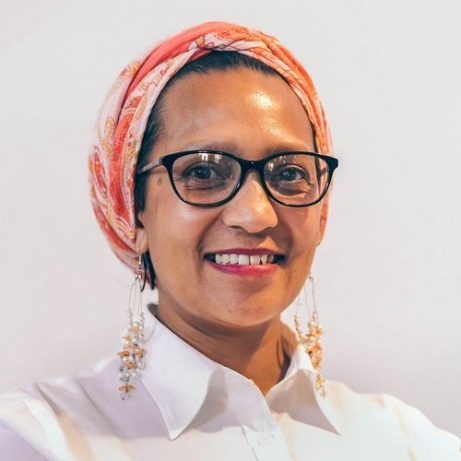
Shamiemah Jassiem
Shamiemah Jassiem became involved in the Montessori Philosophy while working at a Montessori school as a university student. She simultaneously enrolled for the part-time Montessori training course and later took over the school. Shamiemah has over 7 years of experience as office manager and principal at Montessori schools. She also assisted in the management of two different schools, worked as a research assistant at the University of Cape Town and worked as a behaviour therapist assistant. She has presented at several conferences and conducted numerous Montessori workshops in both townships, villages and more affluent areas in South Africa and Ghana. Shamiemah was awarded a distinction for her Masters thesis on Montessori & Religion (University of Cape Town). Her other qualifications include Honours in Psychology (University of the Western Cape; and a B. Soc. Sci. Degree in Psychology & Organisational Psychology (University of Cape Town). She completed her Montessori Pre-Primary Diploma at the Montessori Early Learning Foundation in South Africa (2007), and is a Registered Assessor and Moderator. She has trained Montessori teachers on a full-time basis since 2010 and was awarded the ABSA South African Early Childhood Development (ECD) Best Trainer of the year Award in 2012. She is passionate about creating a world in which all children have access to good education, and believes that we begin by empowering women to offer quality ECD programmes. As a mother of 3, she has been inspired by the Montessori Philosophy and hopes to raise children who believe in themselves and are able to respect themselves, their communities and the environment.
Brain and Learning 0 to 6: How to prepare your child for school
Leading pediatricians warn that many children entering school lack the skills they need to succeed in class. In early brain development, neural connections are made on the basis of early experiences and relationships with parents, siblings and community members. You can help your child be better prepared for school - this workshop and the learning journal you will be able to download were designed to help you understand what you can do to get your baby off to the best start by using brain-based principles in your every day interactions and activities.
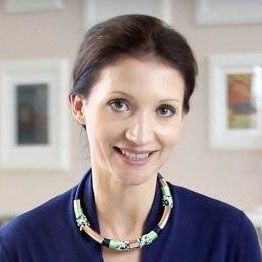
Olimpia Mesa
Author of How People Learn book and leading expert and consultant on brain-based learning design. She is the president of Instructional Design Inc., a company behind hundreds of successful corporate and educational programs both online and in-person, delivered in a variety of different languages. In addition to consulting with Fortune 500 organisations on learning projects, Olimpia is the founder of Book to Courses™ Online School whose main goal is to teach authors how to transform a nonfictional book into live courses or apps.
Behaviors in the Early Childhood Montessori Classroom
Objectives:
- Identify growing trends of students with special needs and define how the Montessori Method is able to meet the needs of students with varying exceptionalities
- Learn and identify concepts: Behavior, Executive Functioning Skills, Social Engagement.
- Learn how to build positive relationships, tailor the environment and utilize specific interventions to meet the needs of each student in the classroom
- Understand the role of observation and implement observation methods regularly
- Learn specific intervention strategies and lesson adaptions to apply when working with students in 3 different levels: whole group, small group and 1:1
- Optimize relationships with staff, administration and caregivers to build teams of support and access necessary resources
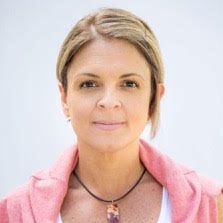
Maria Eva Chaffin
Maria Eva Chaffin is originally from Venezuela. She is married with three boys and two dogs. She is in the process of completing her Doctoral Dissertation in Organizational Leadership. She holds a Master of Science in Exceptional Student Education, a Master’s Degree in Business Education, a Bachelor’s in Special Education, as well as a Montessori Teacher Certification in early childhood. Maria Eva is the founder of Seeds of Life Montessori Academy and Challenging Children and Montessori, a consultant, and a Faculty member of Sarasota University, where she is a professor in the Montessori Master Program. She has over 21 years of teaching experience and has been in the Montessori field for 10 years. It is her great passion to work with children with special needs and since completing her Montessori training she has fallen in love with the method. With her background and experience, she is convinced that the Montessori method is the best way for children to learn.
Method to Music
Frank Leto shares his unique approach to passing on the language of music to young children. His method utilizes a multi-sensory approach that is designed to engage the child on many levels. Frank’s original songs are sung in an “echo”, or call and response. The songs also incorporate corresponding hand motions, making the experience fun and extremely engaging.
An appropriate music curriculum has many benefits for the young child, whether in the classroom or in the home.
Frank’s Method to music can give your child(ren) the gift of music.
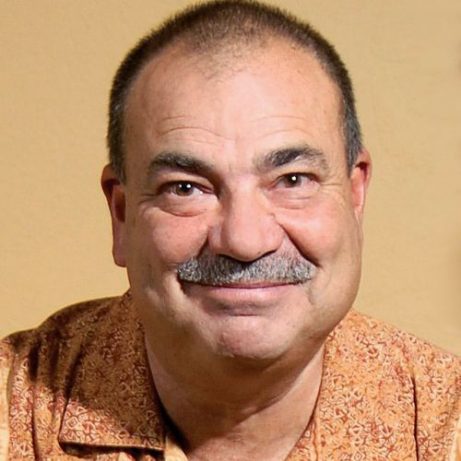
Frank Leto
Frank Leto is an early childhood educator, a musician, a composer and a Montessori teacher who has been working in Montessori schools through out the country for 40 years. He is also a professional musician, Orff music teacher and steel band director. He brilliantly combines his skills as both teacher and musician to create a sound that children love! Frank’s music for children is exceptionally popular with teachers and parents throughout the United States. His music is designed to encourage children’s participation through singing, dancing, fingerplays, games and exercises. Frank has ten interactive, multicultural CD’s, two of which have won educational awards. Some of his music is also available in Spanish and Mandarin. He also has a curriculum book, “Method to Music” which outlines his unique approach to music education. Frank Leto travels nationally and internationally, presenting keynote speeches and workshops at educational conferences including the Music Educators Association (MEA), the Association for the Education of Young Children (AEYC), the Chinese Montessori Society (CMS) and the American Montessori Society to name a few. Frank’s clinics promote his own approach to imparting the love of music on to children. His interactive workshops are designed for non-musicians. In the course of a single workshop, attendees are singing, dancing and playing instruments with a new sense of confidence. With newly learned skills, they enthusiastically return to the classroom and enrich the child’s musical environment.
Join my weekly virtual music class.
Loving Your Child's Mind: How to have fun intellectual conversations with any child ages four and up
Can young children engage in intellectual conversations?
The answer is yes, once one realizes that by means of working within the child's understanding of the world one can expand their understanding by means of asking them questions about their world. Michael Strong shows how to start by asking them simple questions about concepts such as "love," "animal," "fair," "flying," etc. With any concept one can ask them about examples, counterexamples, and boundary cases without pushing them towards any particular direction, but sincerely inquiring how they understand each concept. One can do so lovingly, gently, and authentically in a manner that shows that one loves and cares about how they think and understand the world. By means of such casual conversations interspersed into daily life, one can develop a child who develops the habit of engaging in intellectual dialogue as a normal human interaction.
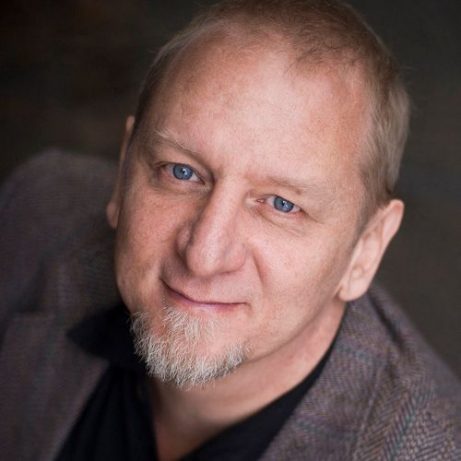
Michael Strong
Michael Strong is the founder of Expanse, a virtual middle school based on warm peer relationships, including Socratic dialogue, team projects, and personal mentoring. He is an experienced school creator whose projects include Moreno Valley High School, a charter school in New Mexico ranked the 36th best public school in the U.S. by Newsweek; Winston Academy, a school for highly gifted students in Florida who successfully completed AP exams; and The Academy of Thought and Industry, the high school model for the largest U.S. Montessori network. He is the author of The Habit of Thought: From Socratic Seminars to Socratic Practice and Be the Solution: How Entrepreneurs and Conscious Capitalists Can Solve All the World’s Problems.
The Art of Listening
- Can the art of listening really change our relationships?
- How often have you been faced with a highly emotional child who is unable to breathe, let alone hear your reasoning, logic or consoling?
- Does your child’s upset cause you to lose your patience? (“Why are you still crying?”)
- Do you use distraction so as to try to curtail your child’s upset? (“Let’s go read a book!”)
- Do you resort to promises of rewards -aka bribery (“If you don’t cry, I’ll get you some candy!”) or threats of punishments (“If you keep crying, we will not go to the park!”) in an attempt to control your child’s emotions?
- How do you feel when you have a problem and someone bombards you with suggestions/solutions and advice? (“You should …..!”)
When we are faced with a child (or other) who is clearly upset, our first response should always be to mindfully recognise that the child is in the ‘problem zone’. This does not mean that we ignore the child’s problem, on the contrary, it gives us indication of what we should do, as the responsible, caring and effective adult, to help the child
By actively listening to the child’s problems, we acknowledge that we have heard what the child has said and understand and accept how s/he feels. Through this empathic display of human connection, the child (or other - this understanding of how the human brain works is true to all human beings) is able to tame the primitive, survival area of his/her brain that has ‘hijacked’ his/her ability to listen to any reasoning, logic, consoling or other.
Join Paula in this hands-on, skills based session that introduces the beautiful Art of Listening!
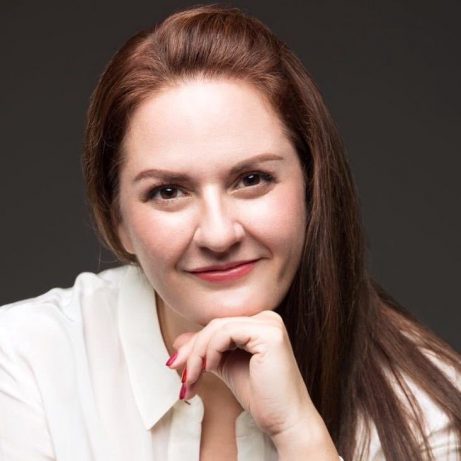
Paula Zhou
An advocate for respectful and effective communication, Paula has worked in Early Childhood education in China for more than 20 years. An experienced Montessorian and teacher trainer for the 0-6 age group, Paula is also a parenting specialist/family consultant and a licensed Gordon Training International Parent Effectiveness Training (P.E.T.) Instructor. A sought after speaker at international conferences, Paula connects with her audiences through humour and anecdotal experience, drawn from both her years of working with children and their families as well as from co-parenting her own, cross-cultural family. Paula is intensely fascinated by the mind and the study of human behaviour and is an ongoing student of Interpersonal Neurobiology. She is also a children’s yoga and mindfulness guide and believes strongly in the importance of arming our children with the skills of mindfulness and emotional regulation.
A TEDx speaker, Paula’s recent passionate talk on the importance of listening to children has been shared extensively throughout the world. Paula is the co-founder of Insight Education, a consultancy practice with a mission to nurture the healthy growth of every child through supporting schools, families and communities world-wide and currently works as the Director of Programs for Higher Ground Education/Guidepost Montessori, China.
The Importance of Outdoor Play
What if I told you there was ONE thing that would help your child become healthier, happier, more independent, coordinated, creative and confident? Spending time in nature and playing outdoors does all that and more! I’ll explain why it’s so important to get your kids outside, provide practical tips to help you get out the door, and easy ideas for fun things to do outside.
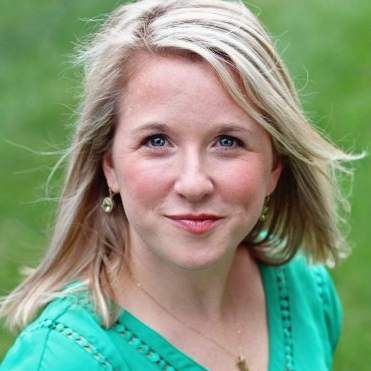
Sara McCarty
Sara McCarty is the founder of Run Wild My Child, an online resource dedicated to getting kids (and their parents) outside and into nature, one adventure at a time. An attorney by day and mother of three (ages 8, 6, and 2), Sara started blogging over 10 years ago and wrote for several large publications on parenting. Her posts about her family's outdoor adventures while camping, fly fishing, hiking, and creeking were always the most popular, so she started Run Wild My Child in 2017 to help inspire other families to get outdoors with their kids and foster a love of nature. Run Wild My Child helps parents take the guesswork out of being outdoors by providing practical advice, fun and easy outdoor activities for kids of all ages, kid-friendly gear recommendations, family travel tips, and nature-inspired educational resources.
Key ‘language’ activities and strategies for parents and teachers
Language development begins in utero and continues at birth. Parents are key in beginning this journey as they coo and talk with the child. These conversations lead to storytelling, dramatic play, reading aloud with children, art work, games, and writing… yes, writing.
- Conversation and discussions
- Storytelling - real & imaginative
- Dramatic Play: using commercial props; using child-made props
- Reading aloud - all kinds of books: information & fiction
- Drawing and all kinds of artwork – art as a reflect practice
- Language games: phonemic activities
- Creating opportunities for writing, including the role of adults modeling writing.
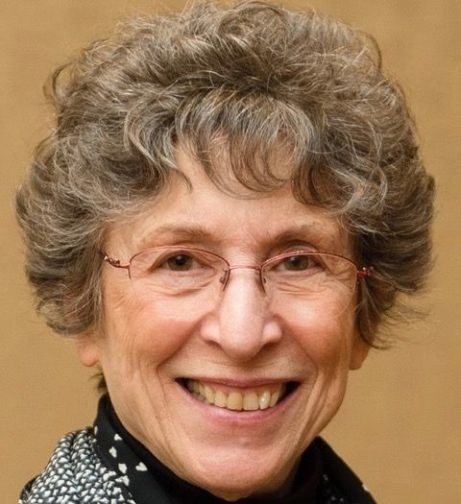
Marlene Barron
Dr. Marlene Barron’s distinguished international career in Montessori education spans over 50 years. She founded the Staten Island Montessori School in 1965, and was Head of West Side Montessori School in New York City from 1979 – 2007 and co-director of its teacher education program until 2008. During this time, she earned a Ph.D. from New York University in early childhood education with a specialization in emergent literacy. On her retirement in 2008, she shifted her focus to workig with schools and teacher education organizations in China and Japan.
Her books for teachers and parents and her articles have been translated into Spanish, Japanese, and Chinese. Most recently, she authored a 4-book series for parents, 真正的蒙氏教育在家庭: 50 个经典语言游戏造就孩子表达能力 Real Montessori Education Happens in the Family, 2017, CITIC Press, Beijing, China.
Her other books for parents include the Ready, Set, Learn series published by John Wiley & Sons in 1995/1996, and I Learn to Read and Write the Way I Learn to Talk: A Very First Book about Whole Language published by Richard C. Owen in English (1990) and Spanish (1993). Her books for teachers include Recording and Reporting: A Comprehensive Recordkeeping System for Early Childhood 记录与报告: 一个全面的幼儿视察与记录系统(1985/2019) and Sensorial Ideas 感官教育思路 (1983/2019).
Dr. Barron has worked tirelessly throughout her career to bring the highest standard of education to children. Her organizational abilities, her attention to detail and her unwavering pursuit of excellence has had an undeniable impact on the spread of quality Montessori education worldwide.
Most important, she is a Montessori mother, grandmother, and great grandmother.
Day 3 • November 18, 2020
Parenting with Emotional Intelligence and Love
This presentation blends Montessori philosophy, Positive Discipline approaches and coaching strategies to provide parents and educators tools to help them invite cooperation, harmony and joy in their homes and classrooms. Perfect for school leaders too!
Agenda:
- Who are you and what might you be inviting from children?
- Fostering important perceptions and skills in children (and self)
- Identifying the need behind the behavior
- Meeting those needs with tools of encouragement and empowerment.

Shawn Edwards
Shawn Edwards received her B.A. in Psychology and Human Services, her AMI Elementary Montessori training and certification, her M.A. in Transformational Coaching and Leadership. She is also a Positive Discipline parenting coach and trainer. She began her Montessori career at the Post Oak School in Houston, Texas. In 2006, she moved to Chicago to lead the Alcuin Montessori School, followed by a transfer back to Texas as the Executive Director of the Community Montessori School in Georgetown, Texas. Ms. Edwards has also served as a consultant to various schools and organizations across the country. She has been involved in various leadership training including school leadership courses offered through Independent School Management and the National Association of Independent Schools. She is currently the Head of School at a LePort Montessori school in Solana Beach, Ca. and the owner of her newest initiative: ToolHows – „How to Tools for Parents and Schools.“ www.toolhows.com.
Shawn has been married for over 30 years, has three grown children (all who attended Montessori programs), and is a proud grandmother of two Montessori children. When she is not working or studying, she enjoys hiking, camping, reading, writing, participating in and training for adventure runs, and spending time with family.
Arrange Your Toddler's Room to Support Concentration
Bored toddlers become imaginative. Overstimulated toddlers become deviant. As a parent, you are the most important educator in your child’s life. They learn so rapidly, and because you are practicing observation and being present with them, you can adapt their environment to offer new challenges and build their self esteem. Join Katelynn's workshop to learn everything about arranging a Montessori movement area for your toddler which supports learning and concentration.
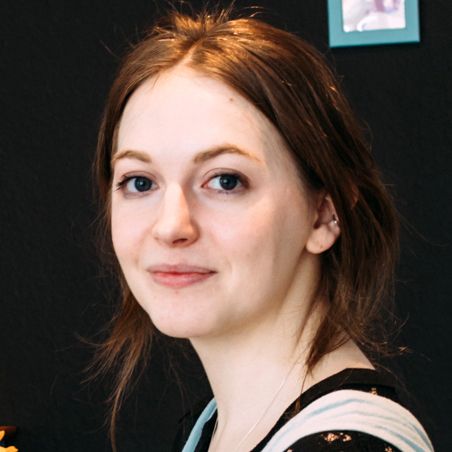
Katelynn Johnson
Katelynn Johnson is the founder, director, and sole teacher at Germany's 1st Montessori early learning center. At her school, Montessori Mother ELC, 80 toddlers and babies attend 1-2 hour Montessori classes with their parents every week. Katelynn is an AMI-certified Assistant to Infancy. She has been teaching for over eight years and is specialised in multilingual environments and language development.
Montessori from the beginning
We often offer guidance, support, and our Montessori education to families after the birth of their baby. During this presentation we will explore how we can, as Montessorians, welcome and include the family during their time of pregnancy, birth, and the Symbiotic Period. Parenting begins during pregnancy and deepening our understanding of the prenatal life of the unborn child, as well as considerations in preparing for birth, can become an integral part of what is offered in your Montessori community. I will cover a variety of possibilities to add to your services, all of which can create an earlier connection and building of trust in parents as they enter and transition into your schools.
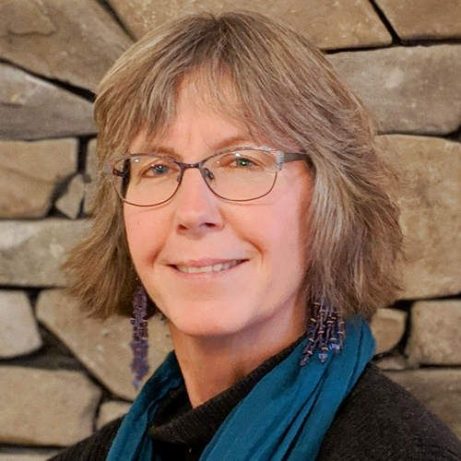
Pamela Green
Pamela Green is the founder, owner, and teacher at Ananda Montessori, in the US, which is a Montessori Parent-Infant and Child program. Pamela has served as a childbirth educator, birth doula, and assistant midwife, since 1990, and guides parents from a Montessori perspective. She is Montessori credentialed (Early Childhood, Elementary I -II, and as a Parent- Infant Facilitator). Her work in Montessori spans over 30 years, and she mentors and consults with parents, teachers, schools, and administrators, worldwide.
What Can We Do? Preparation of the Adult
Montessori pedagogy depends on the interaction between the child, environment and the adult. Whether we are a parent, teacher, or both as a homeschooler, to be guided by Montessori requires we constantly work to undo the assumptions we might have about the children we work with and be present each moment to observe what they truly need or are ready for. Dr Montessori spoke of being a saint, servant and scientist. We will discuss and explore what it means to be the saint, servant and scientist, what the challenges are as well as how to continue growth in all three areas.
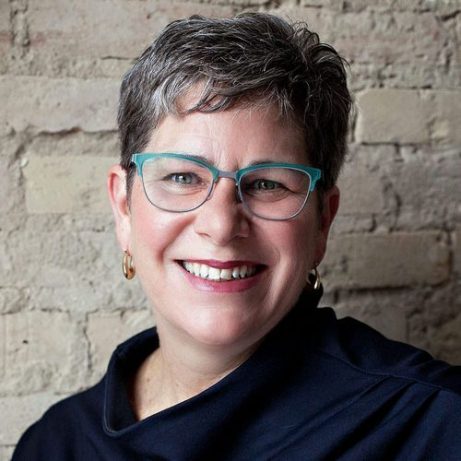
Margaret Whitley
Margaret Whitley is a speaker, writer, Montessori consultant and lifelong learner. After attending Montessori as a child and completing elementary teacher training in Italy, she spent more than 35 years in Montessori education, including teaching all levels of elementary and establishing the first Montessori middle school in Canada in 1988. She embraced many other roles in Montessori leadership including head of school, Montessori parent, teacher trainer and Director of School Accreditation. Guided by her belief that all humans have incredible potential, she continues highlighting education that supports and celebrates community and individual’s uniqueness. Margaret is completing an educational memoir, A World of Difference.
The Importance of the Practical Life activities
The Practical Life activities encourage the development of independence and foster each child’s adaptation to the social context of his or her environment. Although the activities are largely skill oriented (i.e. learning how to wash a table), their purpose is not that children master these tasks for their own sake. Rather, the primary goal is to aid each child’s inner construction through precision and in concentration during full cycles of activity. Join Mrs. Houston, who was trained by Mario Montessori and others who were Dr. Montessori’s closest associates, speak about the importance of the Practical Life activities.
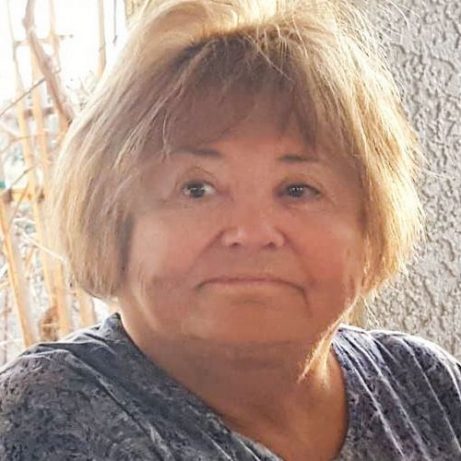
Sandra Houston
Sandra Houston is a seasoned Montessorian with over 50 years of experience as a primary and charter school founder, Montessori teacher, administrator, teacher trainer and leadership consultant. She holds a BA in Education and various other certifications. She has trained under Dr. & Mrs. Claude Claremont, Ms. Lena Wikramaratne, Estella C. Palmieri and Mario Montessori, among others. Sandra has served as an evaluator for MACTE and NCA. She has founded, owned and operated nine primary schools and founded five Montessori charter schools. She has spoken at several conferences and published numerous articles in educational magazines. Sandra has just launched her business, Montessori “N” More to promote various custom curriculum materials that she has created along with the lost Montessori curriculum that belonged to the Claremont’s.
In Montessori's Footsteps, Observation Shows us the Way
Maria Montessori was a scientist who used observation to unearth her revolutionary discoveries in child development. Her observations revealed the methods we use to respond to that development. It is observation that guides us as we relate to and understand the children we teach and the children we raise. In this workshop, I will share some of the tools and techniques for beginning your adventure in observation or honing your observation skills.
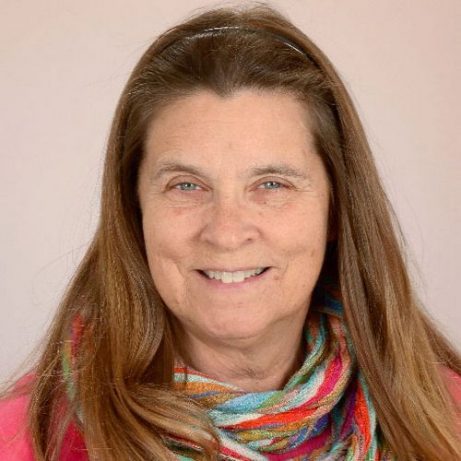
Claudia Mann
Since 1983, Claudia Mann has been enchanted with Montessori education. Certified Elementary I, II and Secondary I, Ms. Mann has guided children and adults in classrooms and schools to be passionate learners, sustaining Cosmic Education as the heart and soul of the Montessori vision. After more than 25 years in the classroom, Ms. Mann was part of the founding team at Chaffee County Montessori School in Salida, CO. After nearly 10 years with CCMS, she and her husband relocated to southern California where she became the Head of School for LePort Montessori Encinitas. Ms. Mann currently coaches teachers and school leaders both onsite and online through www.fossilicious.com and www.inspired-learning-Montessori-education.com.
A day in a Montessori homeschool
- Why do we use Montessori Method for Homeschooling?
- How to Prepare a Montessori environment at home?
- What Our daily schedule look like?
- Kids in Action!
- Some tips for Homeschooling Parents
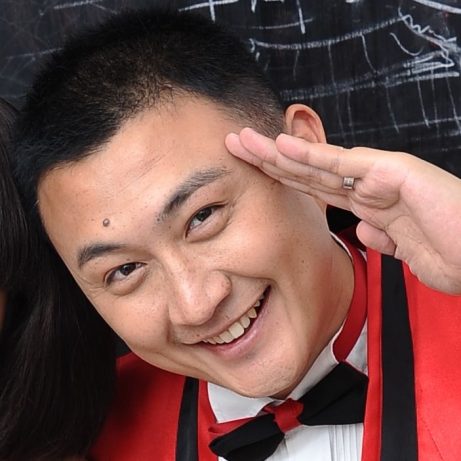
James Lu
- Trainer of Montessori Teacher Preparation International (MTPI)&MTP OF WA
- Montessori Certificated Teacher from 0-12 years
- AMI Assistants to Infancy Certificated Teacher (0-3)
- AMI Montessori Institute of Atlanta Foundation course(3-6)
- AMI Montessori Institute of Atlanta Certificated Elementary Teacher (6-12)
- University of Leeds, UK - M.A. (Hons) in International Communication
- Communication University of China - M.A.(Hons) in Television Arts and Technology
- Communication University of China - B.A. (Hons) in Television Journalism
Dad of 4 kids, Living in GA, USA
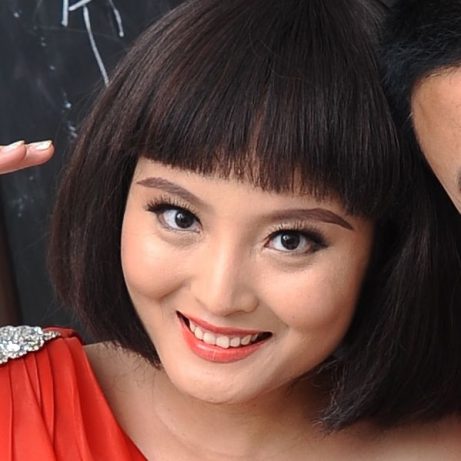
Michelle Gao
- Trainer of Montessori Teacher Preparation International (MTPI)&MTP OF WA
- Montessori Certificated Teacher from 0-12years
- Founder of Luna Montessori International(LMI)
- MIA Montessori Institute OF America certificated Teacher (0-6years)
- AMI Montessori Institute of Atlanta Foundation course(3-6years)
- AMI Montessori Institute of Atlanta Certificated Elementary Teacher (6-12years)
- Mom of 4 kids, Living in GA,USA
Making creative art available to all children
During this speech, I will share some practical examples of how to nurture children’s creativity through process focused art learning. As an educator, I hope we understand that creative solving problems can be taught, it all start with healthy imagination. Art classroom is a place that all about problem solving creatively. We should help students find their personal strength, cherish their individual difference, willing to share their own voice to the world in all creative way.
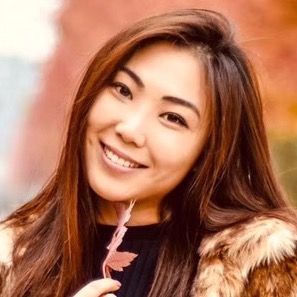
Meishan Hutchison
Meishan is a bilingual artist and educator who has a keen ability to see the distinct intricacies of the world around her. As a practicing artist, Meishan weaves her life experiences into her art. As an educator, Meishan has held numerous roles in primary and secondary educations as well as higher education. With her own international education experiences, she is eager to promote the creative learning through art globally. To simply bring more creative art experiences to more families and make art accessible to all.
Executive Function: Skills for Learning and Life
The skills of executive function are integral to our ability to learn and successfully function in a broad range of daily activities. As more has been learned about these critical skills, it has become clear that teachers of young children can make a real difference in their development. In yet another confirmation of the genius of Dr. Montessori, the development of the skills of executive function is quite compatible with Montessori pedagogy and practice. in this session, you will learn about the skills of executive function, their equivalent in Montessori theory, and the basics of the development of these skills in our classrooms. Walk away with the concrete examples of skill development and knowledge that you can apply immediately to your classroom and at home.
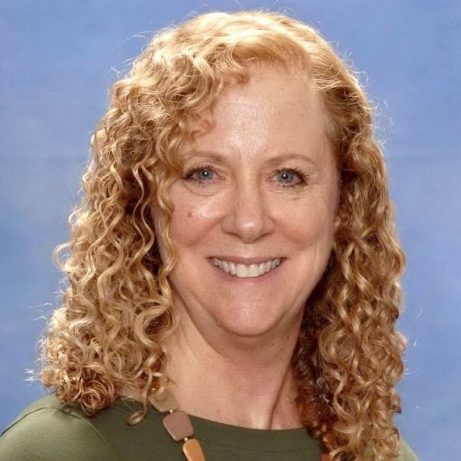
Pamela Shanks
Pam Shanks has been involved in both Montessori and special education for her entire teaching career. In addition to her AMS 3-6 credential, Pam earned a master’s degree in special education from the University of Kansas and held licensing for early childhood education, early childhood special education, and severe multiple disabilities while teaching in Kansas. She worked as a lead teacher in a primary classroom at Raintree Montessori School, Lawrence, KS, for over 30 years. She coordinated the program of inclusion at Raintree while also serving as a supervising teacher for graduate practicum students from KU’s department of special education placed at Raintree. She served as a Field Based Consultant for the entire tenure of the Inclusive Network of Kansas (INKS) and was an instructor for the University of East Carolina's Deafblind Intervener Program for several years. She has presented at a variety of conferences including the Montessori World Congress in Portland; authored many articles on special education in Montessori environments; was a contributing author for 2 books; and authored several on-line modules on special education topics. She currently serves as the Associate Head of School at Bowman School in Palo Alto, CA where she continues to support Montessori teachers and inclusive education.
Day 4 • November 19, 2020
Montessori N.E.S.T: A framework for preparing your home environment
The acronym N.E.S.T. is a handy way to think about all of the elements of your home environment - tangible and intangible - that guide your child to be independent, cooperative, and joyful at home. N represents nooks, which include the areas of the home that are set up for a specific purpose like getting ready for the day or toileting. E is for equipment, which, for small children, largely means toys. S is for spirit and includes the way all family members take in the home with their senses. T stands for trimmings, which refers to the points of beauty, like vases of flowers, and other small touches around the home. As we walk through each area, you will see examples of home environments and hear stories about my own successes and failures at trying to create a child friendly home. You will walk away from this presentation with concrete ideas that you can implement at home right away!
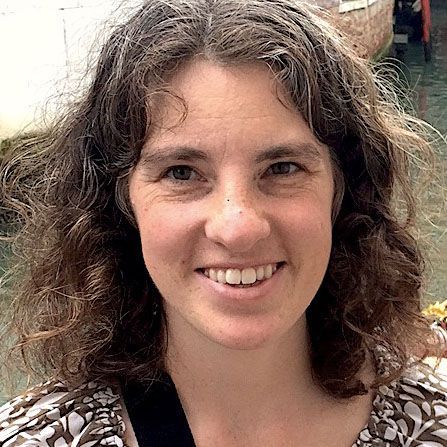
Anna Langstaff
Anna Langstaff has spent the past fifteen years teaching in Montessori primary and elementary classrooms and working with teachers in training in the US and abroad. She is currently the Head of School at Whole Child Montessori Center in Portland, Oregon. She holds a BA from the University of Michigan and is Montessori credentialed for ages 3-12. She is currently a graduate student at Portland State University pursuing a Masters in Inclusive Early Childhood Education with a focus on special education and infant/toddler mental health. Anna is the parent of a six year old who has developmental language disorder and an intellectual disability. His years in the Montessori classroom have helped him thrive. In her free time she loves reading, hiking, trying new recipes and spending time with her family.
The Absorbent Mind
Dr. Maria Montessori, through her scientific observation of children, had concluded that the INFANCY Plane (first stage) of the development of self as an individual, lasting from birth till six years, is a period of The Absorbent Mind. Children are literally like sponges during this plane, capable of absorbing information and knowledge spontaneously, quickly, and effortlessly. Moreover, during the Absorbent Mind developmental plane, children are "sensorial explorers" who perceive their world through SENSES. Dr. Maria Montessori, through extensive observation, discovered that all children follow particular stages of development, called sensitive periods, which are very specific and well defined periods of intense interest in certain areas. Sometimes called developmental stages, these periods of times she referred to as a critical developmental window of opportunity, during which children acquire skills or knowledge with great ease, focus, high energy level, and dedication to a single-minded task. And most of these sensitive periods occur during a child's absorbent mind state.
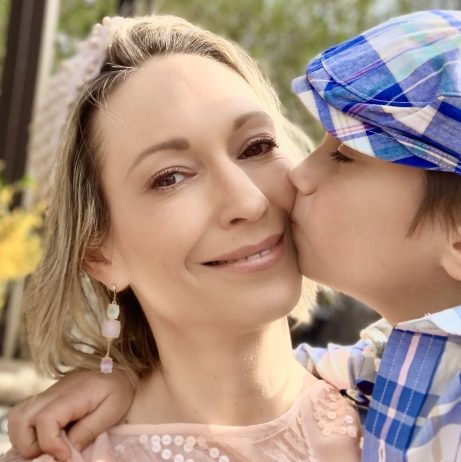
Anya, Montessori From The Heart
Anya, Montessori From The Heart, Esq. turned SAHM, a blogger, an author, and a mentor. I help families, teachers, and educators to embark on an enchanting path of Montessori living by igniting the love of learning, espousing intrinsic motivation, and fostering independent thinking and creative problem-solving. An attorney by degree, I am an educator by heart! After discovering the Montessori way of life, I have embraced it wholeheartedly, raising and homeschooling two of my children, "the Montessori way." Being passionate about little people, the Montessori method, and the love of learning, I respect and follow the child while offering a supportive and sufficiently stimulating prepared environment which spurs enthusiasm and hands-on exploration!
My goal is to introduce the Montessori homeschool education model to parents, bringing Montessori to any home, despite the size or resource limitations. Montessori is the way of life, and all you have to do is embrace it and live it! Anyone can do it! To learn more you can follow my blog where you can find my ebook .
Connecting with Babies and Young Children: How to Slow Down without Guilt or Boredom
Whether you are a teacher or a parent, how hard is it to set aside the worry that if you slow down, you will either not get everything done, or that you will want to just fall asleep? The day with babies can feel like an eternity, or it can fly by. You can either feel filled and satisfied, or exhausted and depleted by the end. This workshop is designed to help you find the energy in each moment, whether during diapering, feeding or quietly observing what the children are doing, or even while comforting their cries. It’s not about what is happening so much as about how you are as it happens. Through experimental exploration, demonstration, and video observation, Ruth Anne and Kira will lead participants to a new viewpoint about what it means to be busy, a new level of self-awareness, and a richer understanding of how productive mindfulness helps them do their very best for babies and young children.
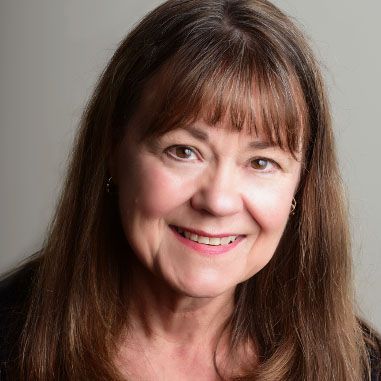
Ruth Anne Hammond, M.A.
Ruth Anne Hammond, consultant and author of Respecting Babies: A Guide to Educaring for Parents & Professionals 2nd Edition (Zero to Three 2019), is a RIE® Mentor, and past-President of Resources for Infant Educarers®. She was faculty in the Human Development Department at Pacific Oaks College & Children's School, as well as head of its Infant/Toddler-Parent Program. She currently leads RIE® courses for parents and professionals in the US and abroad and studies affective neuroscience with Dr. Allan N. Schore.
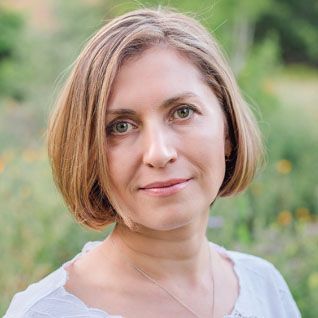
Kira Solomatova
Kira Solomatova has a Bachelor’s Degree in Child Development. Although both of her parents were engineers, Kira dreamed about working with children from the time she was seven years old. Having taught preschool for many years in Pasadena, Kira discovered RIE® and became a RIE® Associate because not only is it inspirational because it advocates for babies, but because it has helped her to become more authentic. She published her first book, Toby is My Bear, as part of a conflict resolution series for preschoolers, and she has a blog about conflicts with toddlers and preschoolers, ihadaconflicttoday.blogspot.com. She founded Our Parenting Place with a partner, designed to help parents be more effective, find support, acquire information and network (ourparentingplace.com) and has a wide following on social media. Kira teaches RIE® Parent-Infant Guidance™ classes, leads workshops, and offers private consultation in English and Russian.
How to Support the Development of Reading and Writing at Home
How can we help children learn to read and write at home while following Montessori principles? This talk will give parents concrete ways to support the development of reading and writing skills for children ages 2-6+ as well as a basis in understanding why we teach writing before reading, why we call letters by their sounds and not their names, and whether we should focus on spelling when a child first learns to write. We will also explore ways to support language development in bilingual and multilingual children.
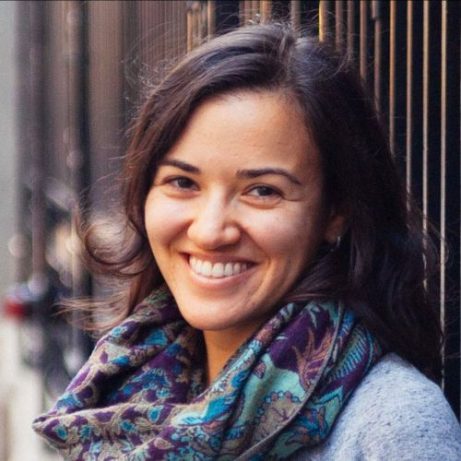
Gabrielle Kotkov, Multilingual Montessori
Gabrielle Kotkov is the creator of the Multilingual Montessori website and Instagram. She is an AMI- trained 3-6 Montessori Guide and a native of New York City. She earned her AMI 3-6 Diploma at the Maria Montessori Institute in London, England, and has worked in Montessori schools in New York, London, and Austin, Texas. She holds a bachelor's degree from Vassar College and a TESOL (Teaching English to Speakers of Other Languages) Certificate from Teachers College Columbia University. She was awarded a Fulbright Grant to spend a year teaching English to Italian high schoolers in Catania, Sicily. Gabrielle is fluent in English and Italian, and also speaks French and a bit of Spanish. She currently works as a Montessori Children's House Guide and is earning a Masters in Child Studies degree from Linköping University in Sweden.
Montessori as Mindful Education
This presentation asserts that Montessori for children and adult learners is mindful education. It responds to the question: What contexts and processes in education might liberate teachers and learners so that they become catalysts for the new human — one whose integral relationship with Gaia is bound by right-action and love?
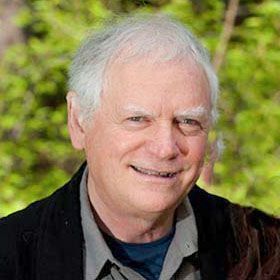
Dr. Philip Snow Gang
Dr. Philip Snow Gang is Founder of The Institute for Educational Studies (TIES) and its graduate programs in Integrative Learning and Montessori Integrative Learning. He is a pioneer in the field of integrative, systemic and transformative approaches to education. He is the author of Rethinking Education, co-author of Conscious Education: The Bridge to Freedom and developer of the mobile mind-mapping simulation, Our Planet, Our Home. His new book, Educating for Right-Action and Love: Extending and Expanding the Montessori Vision will be released later this year.
Growing up in a multilingual environment
What is it like growing up with two or more languages? Nowadays more and more young children find themselves in an environment where more than one language is spoken.Does it confuse children to learn two or more languages at once? Let's see how we can support this process.

Lucie Hajkova
Lucie is a mum of two partly homeschooled multilingual kids and Montessori advocate. She is AMI 3-6 guide. She co-founded Montessori parental school in Italy. She has been for 3 years president of non-profit Montessori association there as well. She loves to travel and discover the world with her kids. She does Montessori consulting for Montessorihracky.cz, Montessoriparenting.org and coordinates this wonderful conference.
Building Physical Literacy in Montessori
In Montessori, movement is a cornerstone of learning. Today, physical activity further proves crucial to counteract the modern trend towards increased sedentarism, exacerbated by isolation during the current pandemic and beyond. In this webinar, we will examine the concept of “physical literacy,” delving into different fundamental physical skills that set the foundation for an active lifestyle, supporting whole child development and wellbeing. We will further explore how the building of physical literacy can be integrated into the learning experience in a truly Montessori manner.
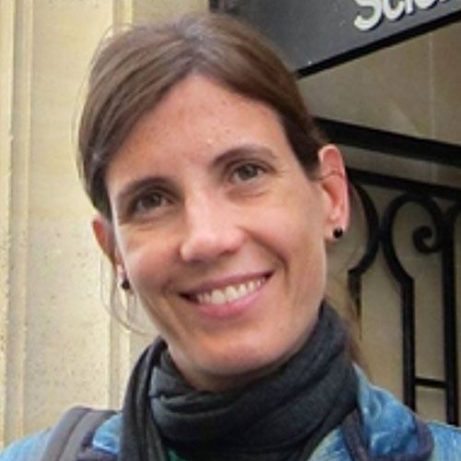
Barbara Murphy, PhD
Passionate about education, Barbara holds a PhD from Northwestern University. She also counts with a Montessori certificate from CGMS. Following her experience in academia, Barbara ventured into entrepreneurship. As the mother of two while living in Italy, she fell in love with the Montessori philosophy. Now the co-creator of Montessori Gym, Barbara is fulfilling her dream of contributing to child wellness and education.
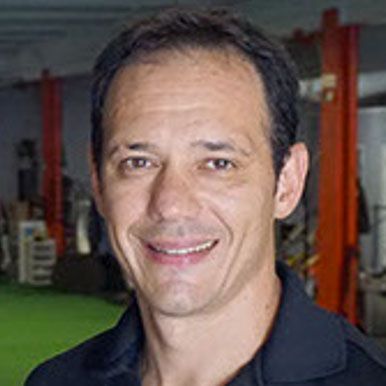
Martin Yaconis, Engr.
After graduating as an Engineer from UBA University, Martin has dedicated his professional life to technology applied to health, sports and rehabilitation. His expertise and experience extend across the areas of physiological, biomechanical and cognitive training and monitoring, where Martin has worked with institutions such as Olympic committees, universities, professional sports teams, high performance athletes and young players’ academies.
Technology and Montessori
When we hear “Technology and Montessori,” so many of us have an emotional response. We imagine materials being replaced by iPads, or needing to get a device into the hands of every child starting at two so they’re prepared for the future.
Regardless of our emotions surrounding technology, are there healthy, effective ways to use this tool with children, even with young children? This conversation will include notes specific to the current global pandemic with thoughts for families and educators with children in unique learning environments, such as temporary or permanent home schooling, distance learning, and blended formats.
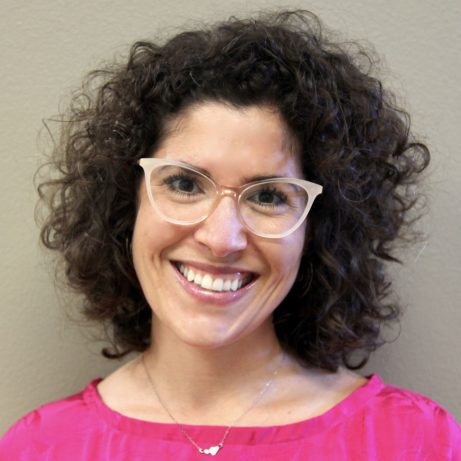
Charlotte Snyder
Charlotte Snyder is Head of School at The Baan Dek Montessori in Sioux Falls, South Dakota. She attended Montessori through Elementary in California, and completed the Primary training at Montessori Northwest in 2010, and earned a Master of Education degree from Loyola University Maryland. She particularly enjoys sharing Montessori philosophy and building relationships with families on Baan Dek’s blog and podcast.
Day 5 • November 20, 2020
Mindful Guidance in Sibling Rivalry
Siblings influence each other in developing personality and gaining life and social skills learning from each other. While it is important to have siblings who are a good role model, parents must understand that the children’s behavior depends much on the way parents react to the children.
This presentation will provide the influence of birth order to develop personality, the key factors of fightings, the tips to remember for resolving sibling rivalry, and parenting style. You will gain the knowledge of the influential fact on how each sibling becomes who they are, the tips for the mindful guidance to create a calmer home environment, and an awareness of the parenting style that is both firm and respectful.
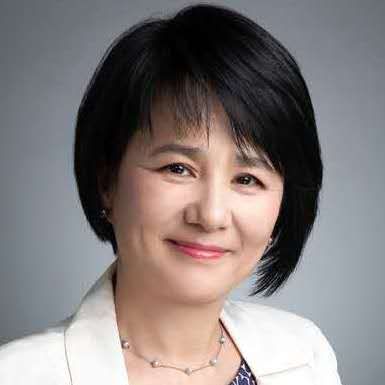
Kiran Paek
Kiran Paek has been in Montessori field over 30 years ago. After receiving her credentials in the early childhood level, she began her career as an assistant teacher and became a master teacher at Princeton Montessori School in Princeton, NJ. After over a decade of teaching at Princeton Montessori, she founded and became the director of Lawrence Montessori School in 2008. Upon finding an opportunity for a directorship at an AMS training center, she moved to Beijing in 2015. Subsequently, she moved to Shanghai to take a director position at a satellite AMS training center. Currently she is the founder and director of a MACTE accredited and AMS affiliated training center, Advanced Study Center for Montessori Community, for which she has developed a hybrid learning programs for early childhood and infant/toddler programs, in Wuxi, China. Since 2007, she has served as a site verifier for Montessori Accreditation Council for Teacher Education (MACTE) and American Montessori Society (AMS).
She holds Early Childhood AMS credential, Master of Early Childhood from Chaminade University of Honolulu in Hawaii, Master of Fine Art from Tisch School of Art in New York University. She loves to take a walk and sing in a choir. Her four children and two granddaughters have been her inspiration to be a part of Montessori Community. She hopes that the ripples of this small movement influence the lives of children, parents and educators in the global community.
Montessori Inspired Prepared Environment for Home Learning
My topic of presentation is Montessori inspired prepared environment for home learning as both lower and upper elementary and primary aged children, which includes how to arrange and present materials.
I will be sharing how to arrange materials, and how to present them, and basic principles needed in order to create a prepared environment at home for home learning, tips for home learning and so on.
Actionable learning that can be applied at home.
- how to arrange materials in tray
- how to arrange materials in order following Montessori learning topic
- how to present materials on a mat
Benefit:
This presentation will guide you how to arrange and present materials in Montessori inspired home learning, and how to encourage children for independent home learning.
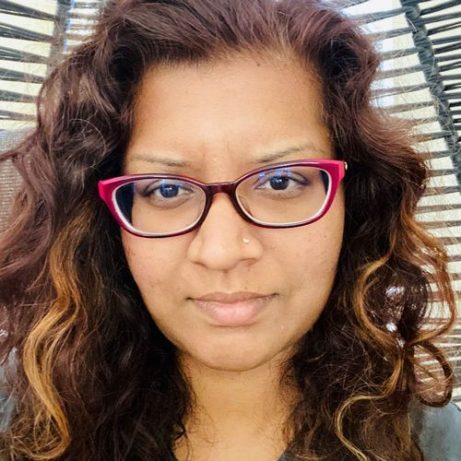
Devi Sekaran
I am stay at home mum from Malaysia. I have a bachelor´s degree from University Malaysia Sabah and Cambridge International Diploma for Teachers and Trainers from Methodist College Kuala Lumpur. I was a private secondary school teacher (in Malaysia) for 2 years, teaching Physics and Additional Mathematics for upper secondary.
My kids are aged 8, 6 and 4 years old. My 8 and 6 years old currently attending an International School while my youngest is attending a Montessori 3-6 preschool. I am not trained in any Montessori program and I am not homeschooling my kids. I discovered Montessori learning principles and learning activities in 2017, and since then I taught myself how to prepare and present materials and try to create Montessori inspired materials and activities at home, since Montessori learning materials can be expensive.
Creating Montessori inspired materials is quite fun and together with my kids, I am learning new things too. All the activities that we do at home takes place in the evening (1-hour learning cycle).
See printables that I have created
My work on my social media: Instagram, Facebook
Role Modeling During Early Childhood: The Adult in The Prepared Environment
We are role modeling during challenging times. Whether you are a parent, a teacher, or a homeschool mom, you may have noticed that our whole paradigm is shifting and so is our vision for the future. The old authoritarian model doesn't work any more; instead our children deserve a foundation as valuable as the one Maria Montessori envisioned which is based on a peace model. Children not only need the physical environment that supports their potential expansion but also the healthy and nurturing emotional environment provided by the adults.
We are a powerful influence on our children, so...
Where do we start?
How do we prepare ourselves?
I would like to share tools to:
- understand and use emotional intelligence
- stay calm during tough times
- communicate compassionately and effectively
- Identify and nourish the child's innate gifts
If we want to "be the change we want to see in the world" (Mahatma Gandhi), we need to work on ourselves first.
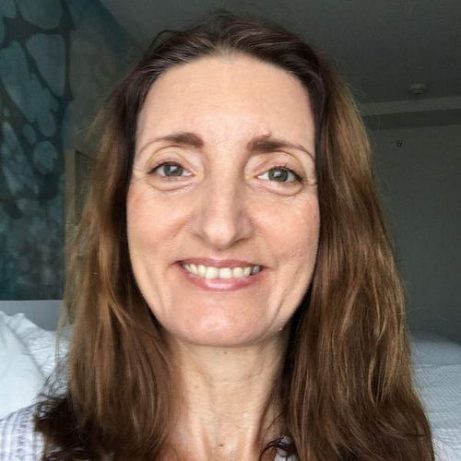
Lorena Tasker
Lorena Tasker has served in the education field for over twenty years. She has been the Assistant Director at Miami Shores Montessori School in Miami, Florida for the past five years and has seventeen years of teaching experience. She began her career as a lower elementary teacher in Argentina and continued as an Early Childhood AMS certified lead teacher in Miami, Florida. She holds an Associate Degree in Elementary Education and a Bachelor of Science in Administration. Lorena is currently an adult educator and instructor at International Center for Montessori Studies. In recent years, she has become deeply immersed in the practice of Kundalini yoga and obtained an instructor certification, sharing ancient teachings to help others find their true essence and purpose. Passionate about children and holistic education, Lorena genuinely believes in self-development as a path for mental and spiritual growth that leads to serving others.
A practical "How-to" guide for mastering the art of Montessori communication – Tackling praise, sharing & big emotions!
Ever catch yourself saying ‘No, Don’t, Stop, how many times have I told you!’ and never really being able to engage cooperation? Or saying ‘Share, it's nice…’ and the child responds saying ‘But I had it first!’ Or have you ever felt like your praise is on a repetition of ‘Good girl, good boy, good job, great work etc’ almost becoming unauthentic, evaluative and not really effective?
This practical session will:
- Minimize the stress, frustrations and pressures you may feel when dealing with BIG emotions, engaging cooperation and sharing.
- Allow you to become more aware of the way you communicate and respond to the needs of the child.
- Equip you with effective communication that will allow you to step out of the habitual language we tend to fall back into.
- Improve your skill set to deal more confidently with everyday situations and more challenging moments.
- Provide you rich and meaningful praise alternatives to build children’s self-belief, self-confidence and intrinsic motivation so they feel empowered and encouraged!
Effective communication can change the outcomes for children by equipping them with the skills and tools to be the best they can be. It also allows us to build our skill set, creating a more cohesive classroom and harmonious home. Join me to master the art of Montessori communication today!
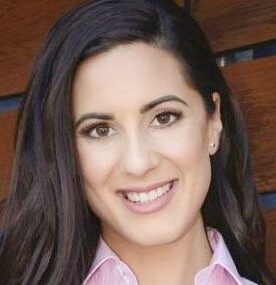
Sylvia Arotin
Sylvia Arotin has had over 10 years experience in Montessori teaching and is the founder and director of My Montessori (0-6 yrs) school in Sydney, Australia. Her passion for children’s learning and development, as well as supporting and educating adults, has been fundamental in developing her well-established Guide & Grow brand. Guide & Grow is the largest online Montessori support platform for parents/educators in the world with over 150,000 members in the village. Guide & Grow helps parents and educators to build their skill set through NESA accredited workshops, online resources & training seminars; specializing in the art of Montessori communication, guiding behaviour & building children’s skill set. Her wealth of knowledge and drive has helped paved her way to success throughout the years. She holds an International Montessori 0-3yrs training, 3-6 AMI Assistants training, an International Communications degree and a Masters in Teaching specializing in early childhood (0-5 yrs) (Honours) from Macquarie University. Sylvia is truly an inspirational motivator to all those who cross her path, be it educators, parents or the wider community and she looks forward to continuing her global mission of spreading authentic Montessori in the years to come. You can contact Sylvia through www.guideandgrow.com.
Montessori is for everyone: raise independent and curious kids
Have you ever scrolled through beautiful Montessori inspired spaces online and thought: “This is amazing... but how do I even start?”
This session will help you understand what Montessori is really about: shifting our perspective on childhood. You will also gain easy and practical tips you can apply at home right away. Learn all about:
- 3 big myths surrounding the Montessori method
- The 4 main concepts you need to know to start applying Montessori at home now
- How to foster independence and curiosity by preparing your home environment with what you already have
- How to create meaningful learning opportunities for your child no matter the budget
- Make Montessori work for you too: how the Montessori method can be adapted to your unique family needs
Are you a parent wanting to promote independence, creativity, and exploration at home? If so, this session is for you!
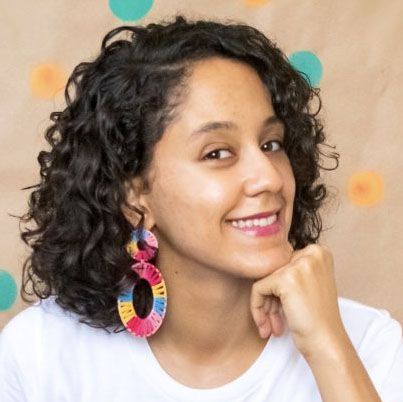
Nathalie Alvarado
Nathalie is a Montessori mom and Upper Elementary co-guide at Villa Montessori School, based in Punta Cana. She helps parents create opportunities for exploration, creativity, and independence at home through meaningful activities and tips inspired in the Montessori method.
As a former architect, as well as a Montessori child herself, she believes in the power of self-directed activity and hands-on learning.
She offers personalized consulting and workshops for parents who want to implement Montessori and respectful parenting practices. Connect with her through her Instagram page.
The How and Why of Montessori Parent-Infant Programs
The mother is the first prepared environment. Expectant and new parents are in a Sensitive Period for learning about their child, and healthy parenting. Montessorians have a desire to reach diverse families and have an impact on the lives of children. In just a few hours per week, we can make a difference for families. Following the Support Group model, parents meet once per week with their child and once more weekly for parent discussion, 90 minutes each session. Parents may join prenatally and receive support preparing for their baby. Once the baby is born, the family may attend as soon as they feel ready. Parent-Infant may serve prenatal to 18 months, or even age 2 or 3, but I prefer that toddlers have an opportunity for independence in a prepared environment.
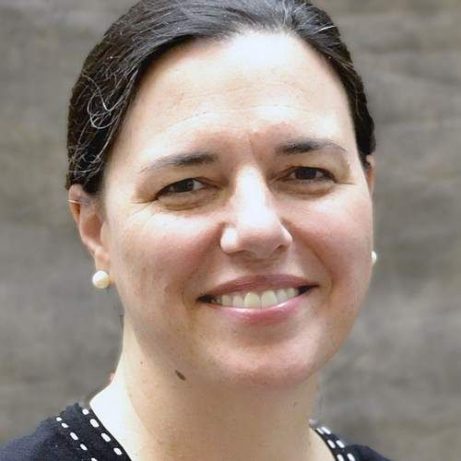
Susan Tracy McDaniel
Susan Tracy McDaniel, M.Ed., Director of Learning Together Education, has made a practice of observing children for more than 30 years. As a consultant to many schools and social service agencies, Susan has applied Montessori educational methods in a variety of settings, including a Chicago homeless shelter, native American and migrant communities. Susan is a parenting coach and speaks frequently to groups of parents and educators. Since 1993, she has taught Montessori Philosophy and Child Development at Seton Montessori Institute. Susan has also taught numerous Montessori and Parenting courses in the US, Europe, and Asia. She is a former adjunct professor at Kendall College in Chicago. Susan has a Bachelor’s Degree in Psychology from Northwestern University and a Master’s Degree in Education from Loyola College in Baltimore. She has Montessori certificates from the American Montessori Society and the Association Montessori Internationale. She is also a certified practitioner of EFT (Emotional Freedom Techniques), a therapeutic technique related to acupuncture. She insists that her real education has been through parenting five children and observing hundreds of others. She was a Montessori teacher for thirty years, working with children ages birth through six.
Susan speaks frequently, sharing anecdotes and observations with audiences large and small. She delights in the discoveries that children make every day and is driven by her resolve to help children by educating adults. Her goal is to make Montessori available in communities everywhere through Parent-Infant programs. She is currently supporting new programs in western Africa. Susan Tracy McDaniel may be contacted at Learning Together Education, www.LearningTogetherEducation.org, www.parentinfant.org
Mindfulness for the moment
Are you trying to deal with everyday stresses of being with the young child, especially during the pandemic? Join Teri for a discussion of Mindfulness and how being in the present moment with a positive attitude can make all the difference. Be ready to look inward so that you can respond outward with an upbeat spin. Also come away with some “mindful” activities that you can do with the little ones that might just make you a bit more mindful yourself!
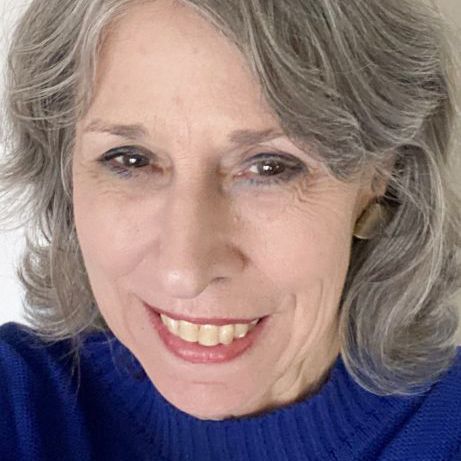
Teri Canaday Freeman
Teri Canaday Freeman started her Montessori career in1973. She helped start the first AMS public Montessori school in Cincinnati, Ohio under the leadership of Nancy Rambusch in 1975. Since that time, Teri has helped start several public Montessori schools and has taught in both small and large private Montessori schools. She was Executive Director of the Montessori Early Childhood and Elementary School in Jackson, TN for 28 years, and Director of an AMS-affiliated teacher education program, MEINA that was conducted in Jackson. Teri had been a long-term member of AMS´s Executive Peace Committee and has worked on developing a peace curriculum outline for teachers. Teri is currently working with IMC as a field consultant and on a task force to reflect on how to create Montessori teacher education programs that are anti-racist/anti-biased. She is passionate about helping others create a culture of peace within their schools and reflecting on how to create peace within ourselves.
Connecting Cosmic Education to Academic Skills
Claudia Mann, Montessori teacher, administrator, parent and coach for more than 35 years, will guide you in the important steps you can take now with your infant or young child to make sure she is ready for the big wondrous work of Cosmic Education in the Montessori elementary program.

Claudia Mann
Since 1983, Claudia Mann has been enchanted with Montessori education. Certified Elementary I, II and Secondary I, Ms. Mann has guided children and adults in classrooms and schools to be passionate learners, sustaining Cosmic Education as the heart and soul of the Montessori vision. After more than 25 years in the classroom, Ms. Mann was part of the founding team at Chaffee County Montessori School in Salida, CO. After nearly 10 years with CCMS, she and her husband relocated to southern California where she became the Head of School for LePort Montessori Encinitas. Ms. Mann currently coaches teachers and school leaders both onsite and online through www.fossilicious.com and www.inspired-learning-Montessori-education.com.